The biotechnology and pharmaceutical industry has flourished in recent years, with mRNA technology attracting the most attention. It has helped in the treatment of cancer, Alzheimer's disease, and dengue fever. The Center for Biomedical Translational Research, Academia Sinica, and Moderna recently held the "2024 Moderna Taiwan mRNA Innovation Award" award ceremony. A total of 35 research projects were registered and 5 winning teams were finally selected. Their research fields cover infectious diseases, Tumor cancer treatment, rare diseases, drug delivery, etc.
Regarding cancer treatment, Anlixirong Biomedical Technology Co., Ltd. won the award for "developing nucleic acid drugs for tumor immunotherapy using innovative T-Action technology." T-Action technology uses a unique combination of two mRNA-encoded immune cytokines to address the problem of insufficient T cell infiltration or exhaustion through metabolic reprogramming and effectively activate anti-tumor immune responses.
According to the research results, T-Action technology shows significant anti-tumor effects. It can not only be used as an independent monotherapy, but can also be used simultaneously with immune checkpoint inhibitors to overcome the resistance of immune checkpoint inhibitors. The new nucleic acid drugs developed using this technology can be used to treat head and neck cancer, liver cancer, and melanoma. Phase I clinical trials are expected to begin in 2026, bringing new breakthroughs to the future of cancer immunotherapy.
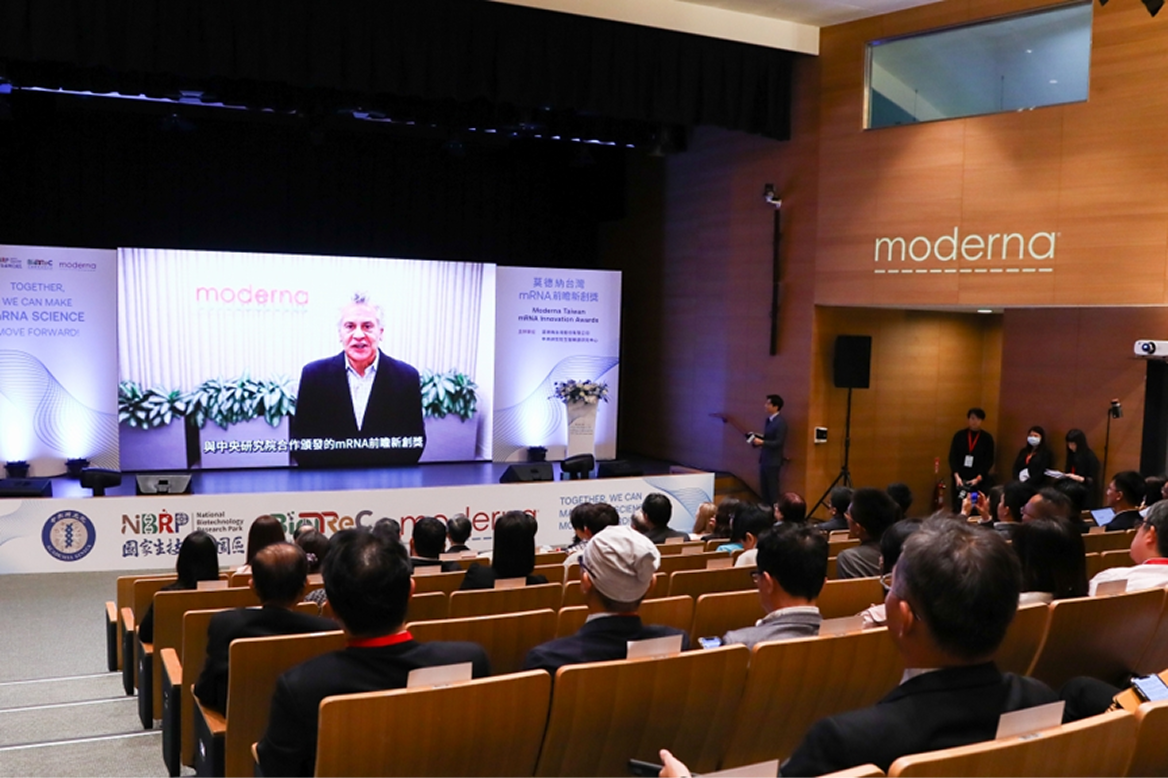 |
|
A total of 5 teams won the "2024 Moderna Taiwan mRNA Innovation Award". (Photo by Wang Yousheng) |
|
Anlixirong focuses on developing new immune drugs |
|
Founded in 2017, Anlixirong Biomedical focuses on the research and development of new immune drugs, including tumor cancer, degenerative neurological diseases, autoimmune disorders and other fields. It has won the Bill Gates Foundation and the American Academy of The team was awarded the Dementia Association Grant and became the only Asian team to receive the award. This year, the team was recognized with the "2024 Moderna Taiwan mRNA Innovation Award" for its T-Action technology, and its R&D capabilities once again amazed everyone. |
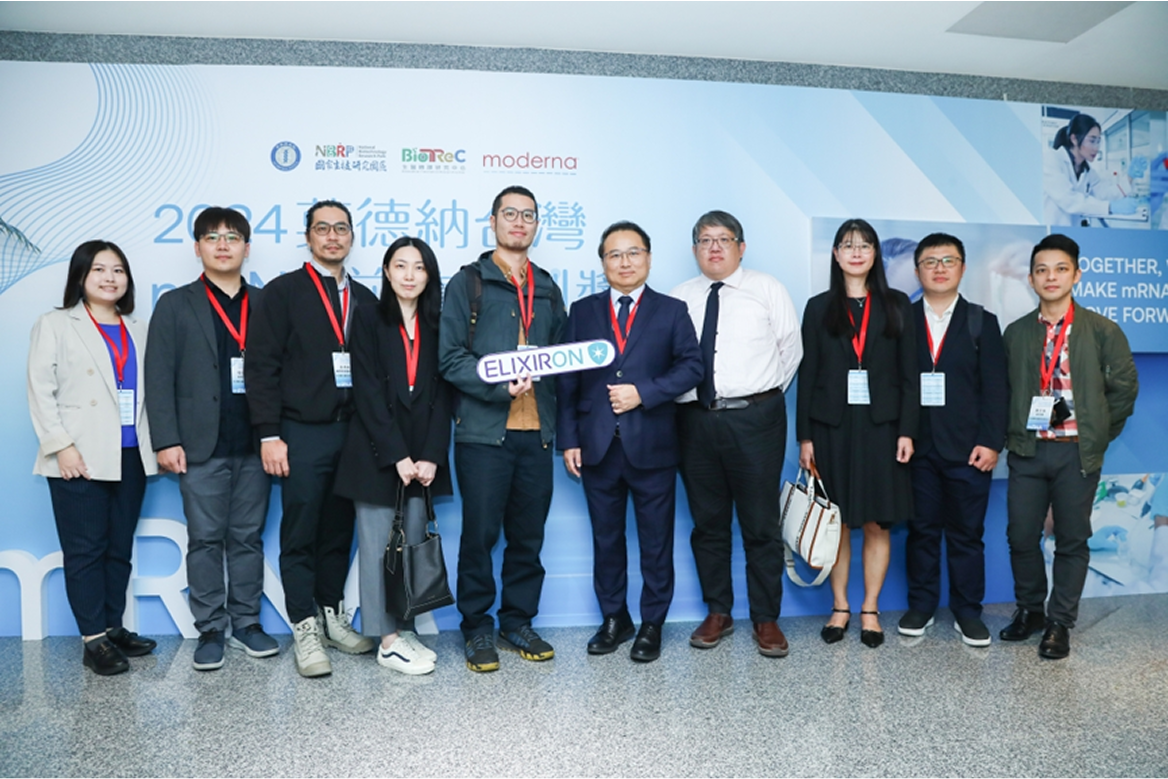 |
|
Group photo of the Anlixirong Biomedical team. (Photo by Wang Yousheng) |
|
As for the reason why Anlixirong invested in the research of new immune drugs, it is related to the background of the three founders, Chen Hongkai, Gu Zhenglun, and Yang Muhua. They are all experts in immune diseases and specialize in the fields of autoimmune diseases, neuroinflammation and tumor immunity. In addition, the investment amount and risk in the biotechnology and pharmaceutical industry are large, so Taiwanese companies must keep an eye on market trends. Currently, the world's largest new drug market is immunotherapy drugs, so Anlixirong is also strategically moving towards the largest market. |
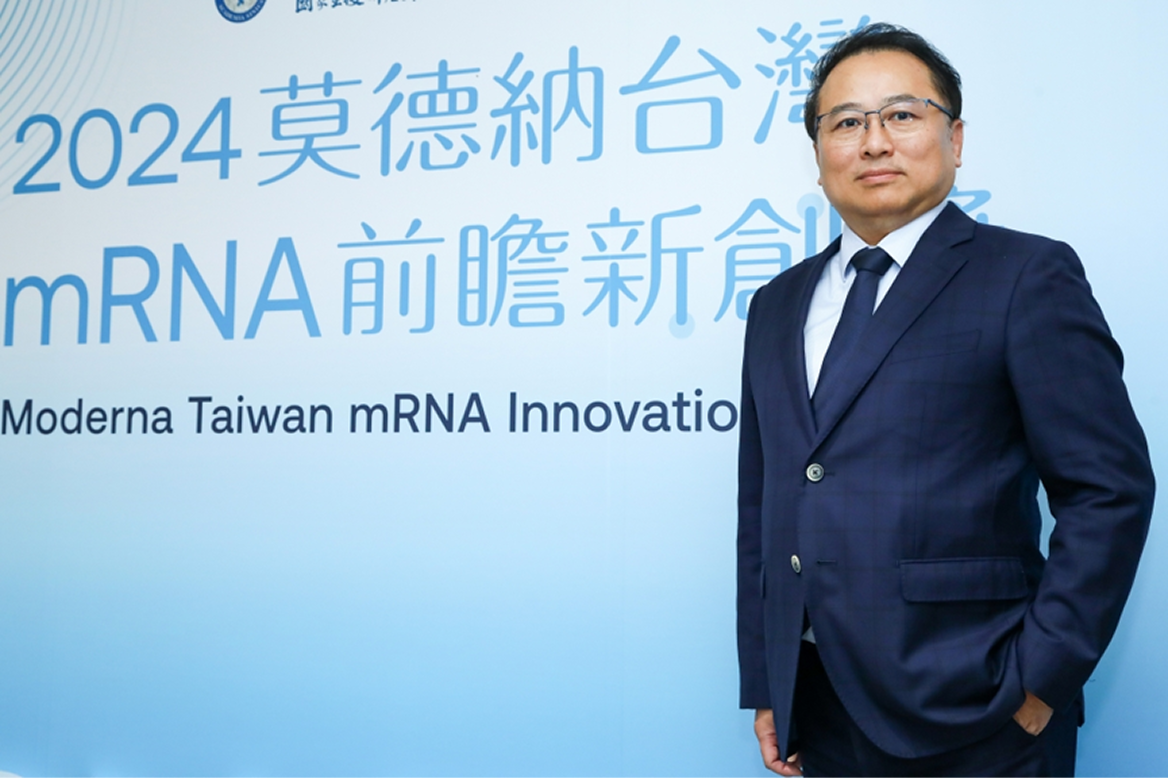 |
|
Chen Hongkai, Chairman of Anlixirong. (Photo by Wang Yousheng) |
|
Lin Shijia, CEO of the Taiwan Medical Alliance Foundation and general manager of Taian Biotech, said that Taiwan's new drug development has entered a new stage. The younger generation of biomedical talents now have a medical background, international experience, sensitivity to clinical sites, and It can directly connect with the international standards, and the chances of successful new drug research and development are high. Chen Hongkai, Chairman of Anlixirong, is one of the representatives. He is a clinical physician himself and has qualifications from GSK International Pharmaceuticals. He is sensitive to the Unmet Medical Needs in clinical sites. |
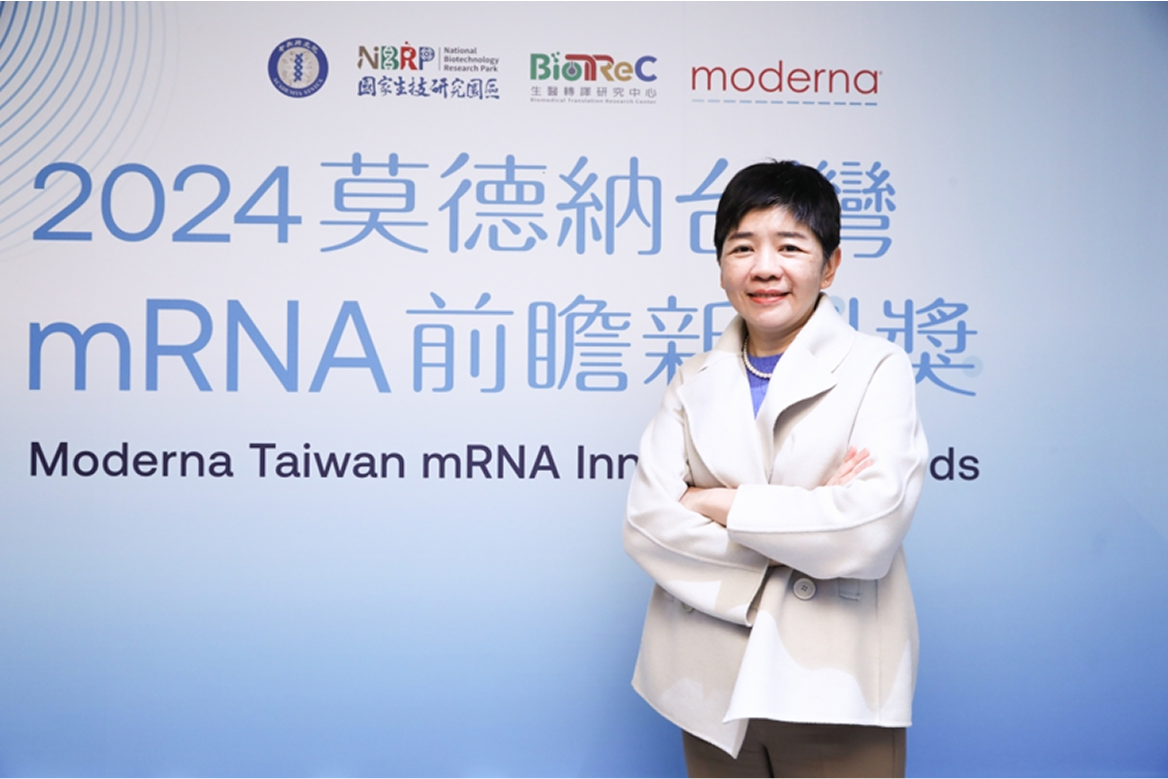 |
|
The Prospects and Outlook of Taiwan's Biotechnology and Pharmaceutical Industries |
|
As for the prospect of applying Taiwan's mRNA technology in cancer treatment, Tao Mihua, CEO of the Translational Medicine Center of the Academia Sinica, pointed out that the most feared thing about cancer is actually recurrence. Cancer treatment is now very advanced. Once the treatment is completed, the future is to return for regular checkups, While waiting for the results, some people may be fine, but some people have a high recurrence rate. The purpose of cancer vaccines is during the period of waiting for the results. During this period, patients are given personalized cancer vaccines to prevent recurrence. . |
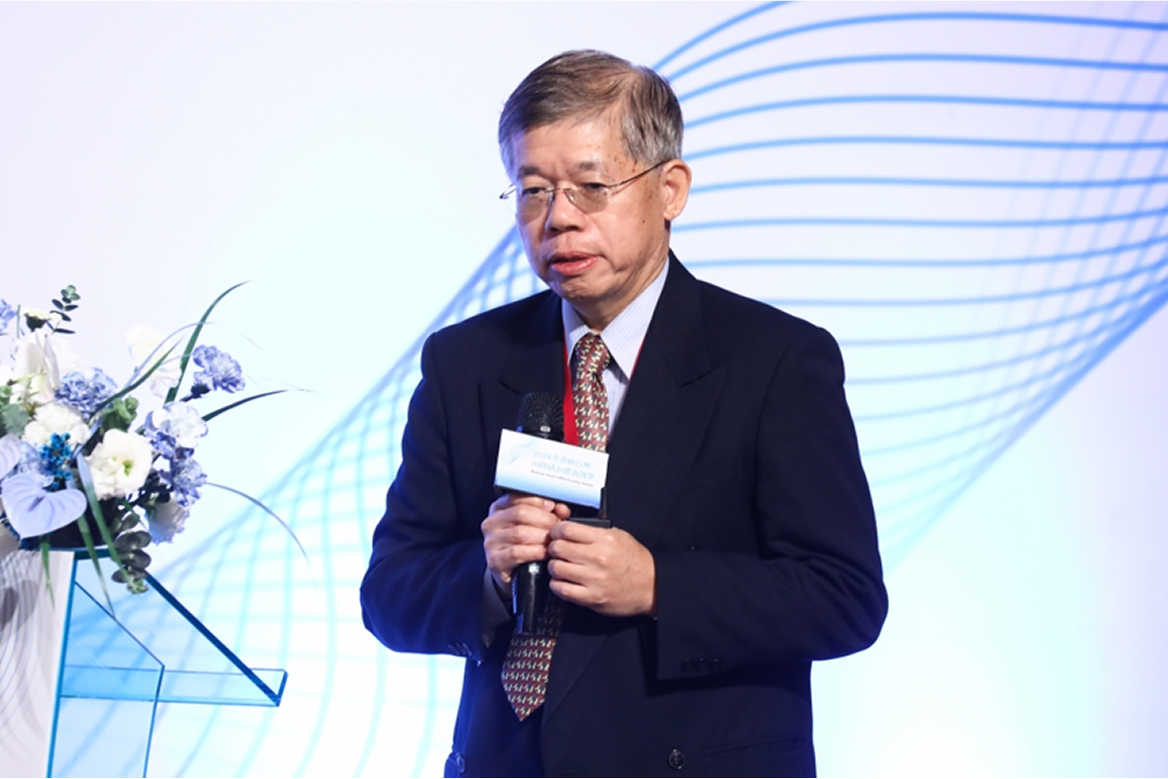 |
|
Tao Mihua, CEO of the Center for Translational Medicine, Academia Sinica. (Photo by Wang Yousheng) |
|
However, Taiwan lacks a site for Phase I clinical trials of mRNA vaccines, making it difficult to quickly develop and advance experiments to the clinical trial stage. In order to overcome this difficulty, Academia Sinica decided to establish an mRNA GMP production facility in the National Biotechnology Park. The facility has been completed, covers an area of approximately 100 square meters, and is in the process of applying for certification from the Food and Drug Administration. Tao Mihua revealed that the facility is expected to be officially put into use as early as next year. |
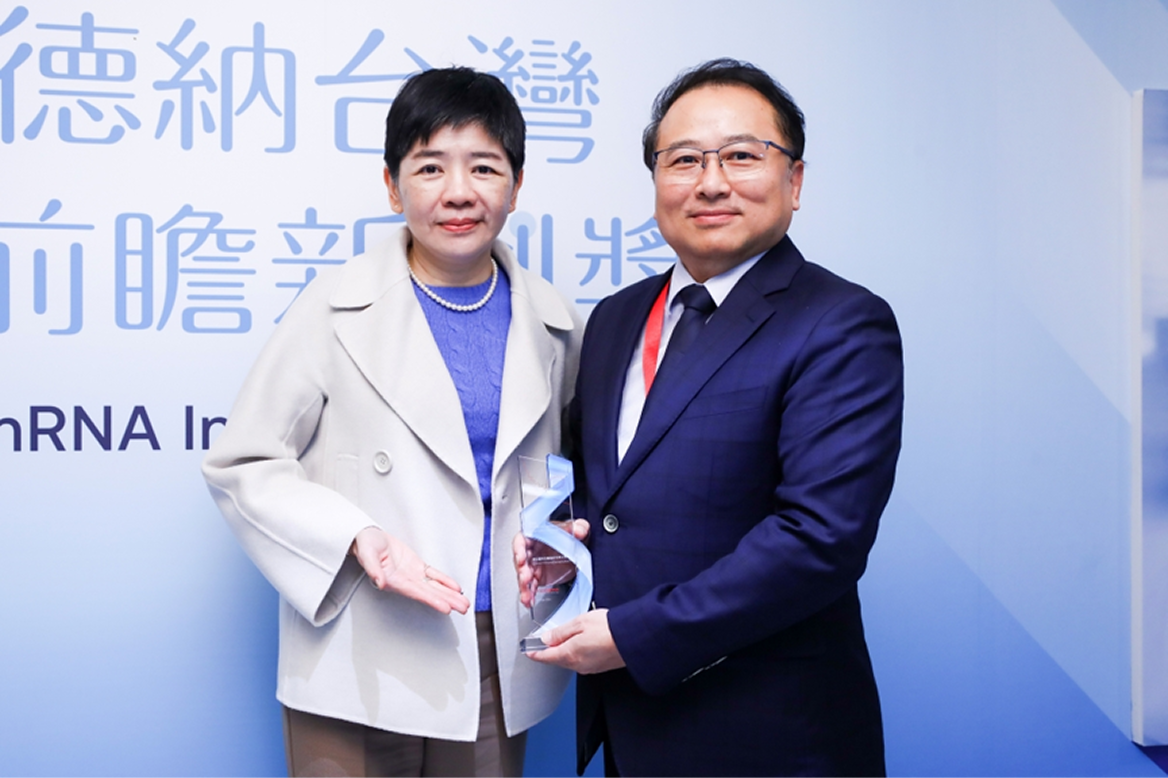 |
|
Lin Shijia, CEO of the Taiwan Medical Alliance Foundation, and Chen Hongkai, Chairman of Anlixirong, took a photo together. (Photo by Wang Yousheng) |




